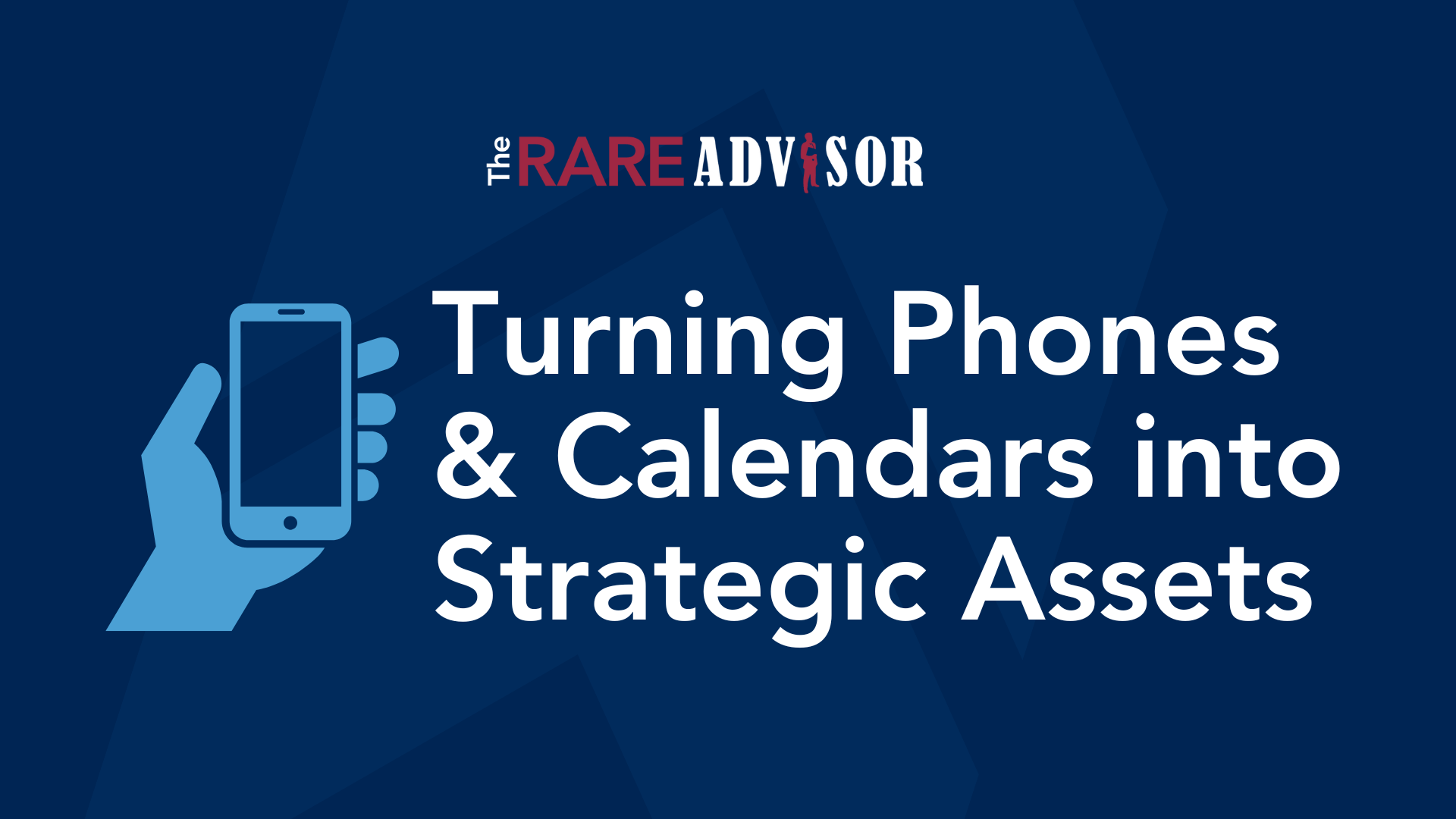SEC Regulation Best Interest: Quick Hit Topics

The SEC Regulation Best Interest (Reg BI) has been in effect for several years now. While there's plenty of information and resources available, it can still be overwhelming to navigate. To help you, we're sharing some quick tips. Keep in mind, this isn't a comprehensive guide, just helpful pointers.
The Standard, Generally
The SEC Reg BI “establishes a “best interest” standard of conduct for broker-dealers and associated persons when they “make a recommendation to a retail customer of any securities transaction or investment strategy involving securities, including recommendations of types of accounts.” (finra.org, SEC Regulation Best Interest, accessed June 17, 2020) There are four obligations that must be met: disclosure, care, conflict of interest, and compliance.
Reg BI imposes a new standard, beyond existing suitability obligations, to act in the best interest of the retail customer at the time a recommendation is made without placing the financial or other interest of the broker-dealers or associated persons ahead of the interest of the retail customers. This includes recommendations of account types, rollovers or transfer of assets, as well as implicit hold recommendations arising from any agreed upon account monitoring arrangement. Not only are you required to put the interest of the client first, but it must also be documented, and any conflicts have to be disclosed at the time of the recommendation.
Using "Advisor"
Reg BI states that unless you are a registered investment adviser, a registered municipal advisor, a registered commodity trading advisor, or an advisor to a special entity, you may not use the term “advisor” or “adviser.” To keep it simple, if you are an IAR or RIA, you can keep using the term.
Navigating Recommendations
While Form CRS and its “conversation starters” are a significant change from what we are used to, the biggest adjustment under Reg BI will likely be navigating recommendations.
There is no real definition of what constitutes a recommendation. Whether or not you have made a recommendation is fact-specific and depends on the circumstances. The best way to determine whether you have made a recommendation is to ask yourself the following:
- Could your discussions with the client be viewed as a call to action (or inaction)?
- Would your conversation with the client reasonably influence them to initiate trades/transactions or stay the course?
In addition to the content, the number of recipients can identify whether you gave a recommendation, as well. The more individually tailored the communication is to a specific customer or a targeted group of customers, the greater the likelihood that the communication could be viewed as a recommendation. For example, a mass communication or advertisement discussing market events and the benefits of holding a specific type of investment in a portfolio may not be viewed as a recommendation. Conversely, sending an email to 20 clients, individually, discussing market performance and the benefits of holding a specific type of investment would likely be considered a recommendation because it is narrowly tailored to a specific group and could be viewed by the client as a call to action that could reasonably influence them to make a purchase or trade.
After the Recommendation
So, you have made a recommendation. What next? If you do make a recommendation, Reg BI’s disclosure obligation requires you to make certain disclosures to the client prior to or at the time of the recommendation. This includes providing the client with Form CRS.
USA Financial representatives have been logging recommendations - albeit in a more limited capacity - for years thanks to FINRA Rule 2211. FINRA Rule 2211, as amended in 2016, requires, in part, that a broker-dealer or associated person "have a reasonable basis to believe that a recommended transaction or investment strategy involving a security or securities is suitable for the customer, based on the information obtained through the reasonable diligence of the [firm] or associated person to ascertain the customer's investment profile." The rule also explicitly covers recommended investment strategies involving securities, including recommendations to "hold" securities.
Reg BI’s requirement to document that a recommendation was in the client’s best interest and provide disclosures is much broader than Rule 2211’s hold recommendation requirements. At USA Financial, we are expanding our hold recommendation process to accommodate Reg BI recommendations. Expanding the hold recommendation process will accomplish two objectives: first, it will help to document recommendations and evidence actions on behalf of the client and second, it will provide an easy and efficient way to deliver the disclosure documents required under Reg BI.
Written disclosures along with Form CRS should address the following:
- The general capacity in which you are acting regarding the recommendation.
- The fees associated with the account or the recommendation. This information will build upon the fees and costs disclosure in Form CRS, with more particularity, such as whether fees are deducted from the customer’s account per transaction or quarterly. This obligation does not require individualized disclosure for each retail customer. Rather, the use of standardized numerical or other non-individualized disclosure (e.g., reasonable dollar or percentage ranges) is permissible.
- Any requirements to open or maintain an account.
- Any high-level, material limitations on the securities or investment strategies involving securities that may be recommended to the client.
You should also consider using the following dialog prompts, to ensure clients understand the where, what, why, and how of the recommendation:
- Be clear about the capacity in which you are acting – is this a brokerage account or an advisory account? Are you going to continue to monitor the account or is this a set-it-and-forget-it transaction? If you are monitoring it, what is the scope and frequency of the review?
- What is the basis of your recommendation – why are you making this recommendation?
- Explain how fees are assessed on the client’s account or on the transaction you are recommending.
- Discuss any unique thresholds associated with the account: low account balance charges, account minimums, etc.
Documenting the Recommendations are in the Client's Best Interest
Once you’ve considered all the factors and you’ve found the right recommendation for your client. How do you document it? USA Financial has employed tools to help streamline the documentation of comparisons and rationales into a quick and standardized process. Representatives complete a quick check-box style questionnaire as to their clients' needs and preferences and enter their recommendation. The platform then pulls a list of reasonable alternatives, their features and costs, to then be considered by the representative. These comparisons are saved and documented to memorialize the representative met their Reg BI obligation.
Many advisers ask whether considering alternatives means they have to consider EVERY alternative. Thankfully, the answer is NO. Exploring alternatives does not require an evaluation of every possible alternative. Nor are you required to recommend one ‘‘best’’ product. You just want to show that you’re not a one trick pony. There are no best products or bad products, just reasonable or unreasonable selections based on the client’s needs.
Also, keep in mind that while cost is a factor, it’s not a race to the bottom. You don’t have to recommend the least expensive product if it’s not in the client’s best interest. But, if there is a less expensive product that’s similar, you should consider it and justify why you went with the more expensive product.
USA Financial has tools to help make documenting your product comparisons and evaluations.
Feeling prepared? If you are uncertain as to how your firm is addressing SEC Reg BI or want to know more about how USA Financial supports our affiliated advisors, contact us or give us a call at 888-444-0125.
Author Info

Dawn Thomason is the Chief Compliance Officer at USA Financial, joining the firm in 2008. She oversees the compliance department and the...
Related Posts

Access by Design: Turning Phones and Calendars into Strategic Assets
In this episode of The RARE Advisor, host Aaron Grady and practice management consultant Allan Oehrlein continue their discussion on time allocation by exploring what comes next: operationalizing structure across the entire advisory team. They break down why the phone is the “front door” to the firm and the calendar is the “engine room,” and how elite practices use standardized phone scripts, the strategic power of the word “unavailable,” intentional scheduling rules, and team empowerment to build consistency, capacity, and trust. Aaron and Allan outline how designed access—not unlimited access—creates scalability and a stronger client experience, while reducing reactivity, burnout, and advisor bottlenecks. They also offer practical challenges advisors can implement immediately to redesign their phone and scheduling processes in ways that elevate both team culture and enterprise value.

What’s Trending: The Love, Fear, and FOMO Driving February Markets
In this episode of the Trending Report, host Tyler Krzciok explores why February is the month when even the most disciplined investment intentions start to slip. After a confident and structured January, many investors begin questioning their strategy as headlines intensify, markets wiggle, and hot themes take over the conversation. Tyler breaks down why old habits reappear, how emotions like love, fear, and FOMO quietly steer decisions, and why formula‑driven processes help clients stay grounded when impulse tries to take over. If you're helping clients maintain clarity in a noisy environment, this episode shows how strong frameworks—not strong feelings—keep investors on track.

Growing Your Advisory Business: A Roadmap to Building AUM
The decade’s-long trend toward fee-based advisory business was validated as financial professionals faced the global pandemic in 2020. While professionals relying on new clients for revenue via transactional business found themselves in a predicament as the country went on lockdown and people stayed home, those with recurring revenue streams from assets under management (AUM) were able to navigate the choppy waters with far less revenue fluctuation in their businesses.

Access by Design: Turning Phones and Calendars into Strategic Assets
In this episode of The RARE Advisor, host Aaron Grady and practice management consultant Allan Oehrlein continue their discussion on time allocation by exploring what comes next: operationalizing structure across the entire advisory team. They break down why the phone is the “front door” to the firm and the calendar is the “engine room,” and how elite practices use standardized phone scripts, the strategic power of the word “unavailable,” intentional scheduling rules, and team empowerment to build consistency, capacity, and trust. Aaron and Allan outline how designed access—not unlimited access—creates scalability and a stronger client experience, while reducing reactivity, burnout, and advisor bottlenecks. They also offer practical challenges advisors can implement immediately to redesign their phone and scheduling processes in ways that elevate both team culture and enterprise value.

What’s Trending: The Love, Fear, and FOMO Driving February Markets
In this episode of the Trending Report, host Tyler Krzciok explores why February is the month when even the most disciplined investment intentions start to slip. After a confident and structured January, many investors begin questioning their strategy as headlines intensify, markets wiggle, and hot themes take over the conversation. Tyler breaks down why old habits reappear, how emotions like love, fear, and FOMO quietly steer decisions, and why formula‑driven processes help clients stay grounded when impulse tries to take over. If you're helping clients maintain clarity in a noisy environment, this episode shows how strong frameworks—not strong feelings—keep investors on track.

Growing Your Advisory Business: A Roadmap to Building AUM
The decade’s-long trend toward fee-based advisory business was validated as financial professionals faced the global pandemic in 2020. While professionals relying on new clients for revenue via transactional business found themselves in a predicament as the country went on lockdown and people stayed home, those with recurring revenue streams from assets under management (AUM) were able to navigate the choppy waters with far less revenue fluctuation in their businesses.

